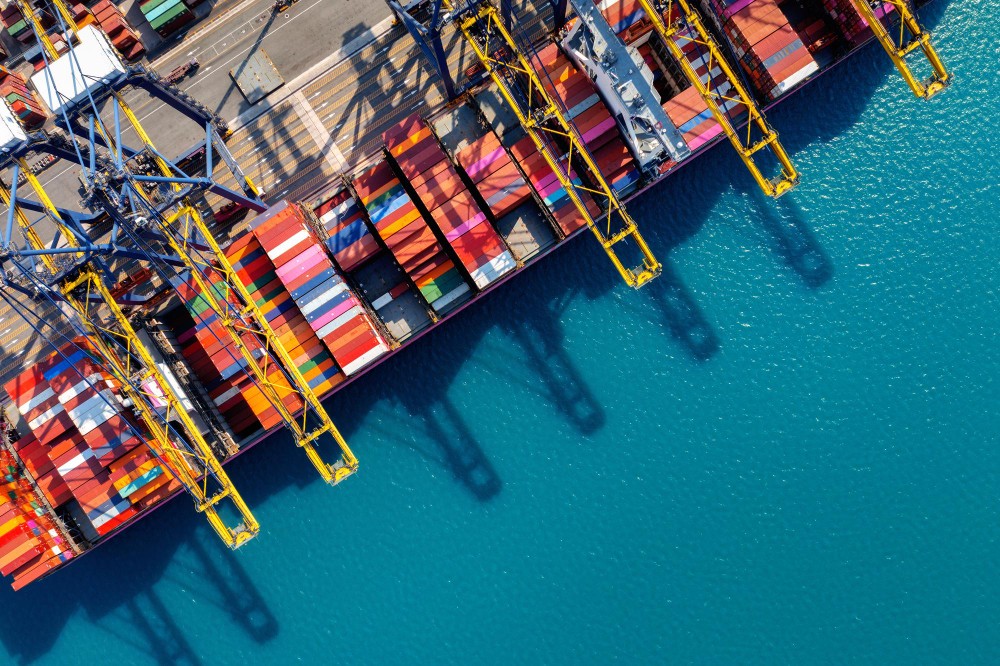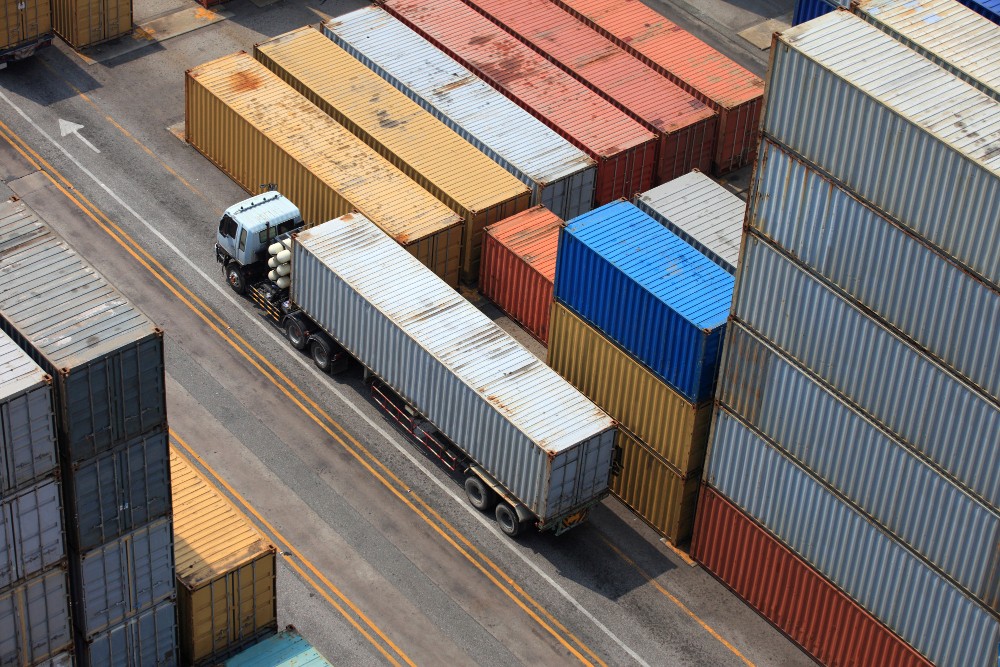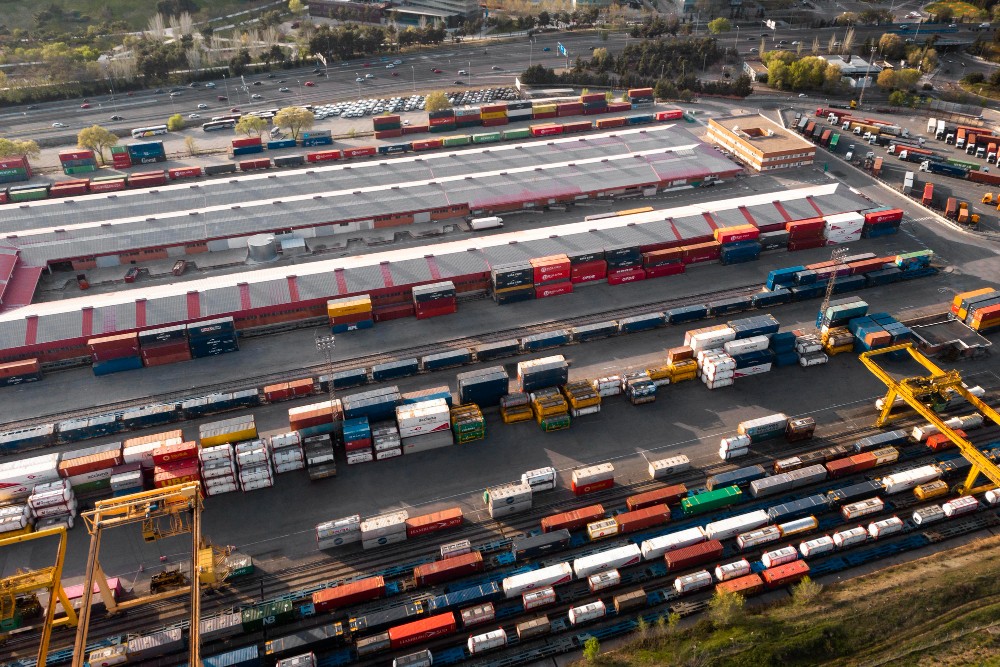Be your Logistics Department in China
Customized logistics solutions, your logistics expert in China
Customized logistics solutions, Shipping from China to the World
Tel:+8613424475220 Email:info@viputrans.com 
Container Detention & Demurrage
Free time determines the period during which a container can be used without incurring charges. Any usage beyond this time results in fees.
Demurrage and detention are distinct but interconnected in the cargo journey.
Demurrage charges are applicable when a container remains inside a terminal beyond the agreed-upon time. Their purpose is to discourage long-term storage at the port.
Detention refers to the duration a container spends outside the port. If the consignee retains the carrier's container beyond the free time, detention fees will be imposed. In essence, detention charges are applied when containers are not returned to the carrier on time.
Container detention and demurrage are vital aspects of the logistics industry, playing a significant role in the efficient movement of goods. In this comprehensive guide, we will explore the definitions, differences, and strategies to manage container detention and demurrage effectively. Whether you are an importer, exporter, or logistics professional, understanding these concepts is essential to avoid unnecessary costs and delays.
Container detention and demurrage refer to charges imposed by shipping lines when containers are not returned or picked up within the allocated time. These charges are meant to incentivize prompt container movement and ensure the availability of containers for other customers. Understanding the key terminology related to demurrage, detention, and storage charges is crucial in navigating this complex landscape.
Demurrage is a charge levied by shipping lines when containers are not returned to the designated location within the agreed free time. The purpose of demurrage charges is to compensate for the lost revenue and additional expenses incurred due to delayed container returns. Factors influencing demurrage charges include port congestion, customs delays, and inadequate planning.
In the context of Hamburg, look at some examples of demurrage charges for CMA CGM containers. These charges vary depending on factors such as container size, duration of delay, and the shipping line's specific terms and conditions.

Container detention occurs when containers are not picked up within the agreed time frame from the port or terminal. Shipping lines impose these charges to compensate for the unavailability of containers for other customers and the extra costs incurred due to delayed pick-ups.
Understanding detention rates and policies is crucial to avoid unnecessary expenses. Delays in container pick-ups can have a significant impact on importers, resulting in storage costs, missed production schedules, and potential customer dissatisfaction. By effectively managing detention, importers can optimize their supply chain operations.
While container demurrage and detention are closely related, there are distinct differences between the two. Demurrage charges for late container returns, and detention charges for late pick-ups.
However, demurrage and detention often overlap in practice, leading to confusion. It is crucial to manage both effectively to avoid unnecessary costs and delays in the supply chain.
Storage charges come into play when containers are held at the port or terminal after the free time for demurrage or detention has expired. These charges compensate for the use of storage facilities and are essential to consider when calculating overall costs.
Factors influencing storage charges include container size, duration of storage, and the specific terms and conditions of the port or terminal. Implementing strategies to minimize storage costs can help importers optimize their supply chain expenses.
Excessive demurrage and detention charges can disrupt supply chain operations and incur significant financial losses. Delays in container movement can lead to missed production schedules, increased inventory holding costs, and strained relationships with customers.
To mitigate these risks, all stakeholders must engage in effective planning, communication, and collaboration. By aligning expectations and establishing efficient processes, the negative impact of demurrage and detention charges can be minimized.

Importers and exporters can adopt various strategies to avoid or minimize demurrage and detention charges:
Effective container planning and scheduling: Ensuring accurate forecasts and aligning container requirements with production schedules can help optimize container utilization.
Optimizing loading and unloading processes: Streamlining processes at warehouses and distribution centers can reduce the time required for container handling.
Negotiating favorable terms with shipping lines: Establishing long-term partnerships and negotiating flexible terms can help reduce demurrage and detention charges.
The logistics industry has implemented various best practices to manage demurrage and detention effectively. These include:
Industry standards and guidelines: Following industry best practices and guidelines ensures consistency and transparency in demurrage and detention management.
Automation and digital solutions: Leveraging technology can streamline processes, enable real-time tracking, and provide accurate data for effective decision-making.
Case studies of successful implementation: Learning from successful examples within the industry can provide insights into best practices and strategies for managing demurrage and detention.
Container detention and demurrage charges are critical considerations for importers, exporters, and logistics professionals. Understanding the definitions, differences, and strategies to manage these charges effectively is essential to ensure efficient supply chain operations and avoid unnecessary costs and delays.
By implementing effective planning, communication, and collaboration, stakeholders can minimize the negative impact of demurrage and detention charges on their businesses. Leveraging industry best practices and digital solutions can further enhance efficiency in managing these charges.

Container detention and demurrage are terms commonly used in the logistics industry, but they have different meanings. Demurrage refers to charges when containers are not returned within the agreed free time at the port or terminal.
On the other hand, detention involves charges when containers are not picked up within the agreed time frame. Both charges are related to delays in container movement, but demurrage applies to containers at the port, while detention applies to containers that have been released for pick-up.
Demurrage charges are determined by factors like the length of delay, container size, and the specific terms set by the shipping line. Usually, these charges increase daily as the delay continues. It is crucial to review the shipping line's terms and conditions to understand how demurrage charges are calculated and plan container movements accordingly.
To avoid demurrage and detention charges, importers can take several proactive steps:
Proper planning and coordination: Ensure accurate forecasting and align container requirements with production schedules to minimize delays.
Efficient documentation and customs clearance: Streamline documentation processes and ensure timely customs clearance to avoid unnecessary delays.
Effective communication with stakeholders: Maintain open lines of communication with shipping lines, freight forwarders, and other relevant parties to stay updated on container availability and any potential issues.
Demurrage and detention charges may be negotiable during strikes or natural disasters. Importers and exporters need to establish good relationships with shipping lines and engage in open discussions regarding potential waivers or reductions in charges. However, it is essential to carefully review the terms and conditions provided by the shipping lines and negotiate within the agreed-upon parameters.
Digital solutions play a crucial role in managing demurrage and detention efficiently. These solutions provide real-time visibility into container movements, allowing importers and exporters to track containers, monitor delays, and plan accordingly. Digital platforms also enable automated documentation processes, improve communication between stakeholders, and provide data-driven insights for decision-making. By leveraging digital solutions, businesses can streamline their operations, reduce delays, and mitigate the impact of demurrage and detention charges.
In conclusion, container detention and demurrage charges have a significant impact on supply chain operations and costs. Effective change management is crucial for importers, exporters, and logistics professionals to minimize delays and avoid unnecessary expenses. Understanding the definitions, differences, and strategies can help optimize operations. Implementing best practices, leveraging digital solutions, and maintaining effective communication with stakeholders is key to successfully managing demurrage and detention charges in the logistics industry.
If you have any more questions or need further assistance, feel free to reach out.
Copyright © 2003-2025 VIPU Supply Chain Logistics Co., Ltd. | All Rights Reserved
LOGISTICS | E-COMMERCIAL FULFILLMENT | ABOUT US | CASE | NEWS | VIDEO | CONTACT US
We will find the fastest or the cheapest way for your shipment. Please specify: where from, where to, what to ship.